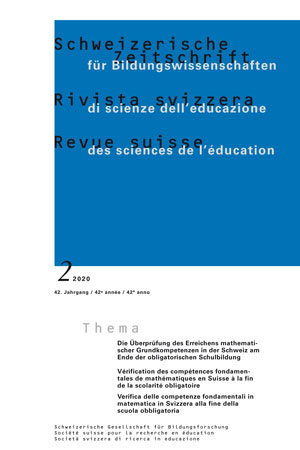The relationship between student motivation and mathematics achievement in the Assessment of Basic Competencies (ÜGK) 2016
DOI:
https://doi.org/10.24452/sjer.42.2.7Keywords:
Mathematic achievement; motivation; self-concept; self-efficacy beliefs; expectancy-value-theoryAbstract
Based on the expectancy-value-theory (Eccles et al., 1983), we tested the relationship between motivation variables and mathematics achievement using ÜGK 2016 data of N = 11’131 students at the end of compulsory education. The results confirm the predictive power of learning goal-orientation, self-concept, and self-efficacy beliefs for explaining mathematics achievement. Gender-specific differences such as the pronounced lower mathematics self-concept of girls despite comparable achievement can be explained by a multi-dimensional assessment of mathematics self-efficacy beliefs as there are significant differences in applied mathematics but not in algebra.
Downloads
Download data is not yet available.
Downloads
Published
2020-10-14
Issue
Section
Thematic contribution
How to Cite
Girnat, B., Hagenauer, G. and Hascher, T. (2020) “The relationship between student motivation and mathematics achievement in the Assessment of Basic Competencies (ÜGK) 2016”, Swiss Journal of Educational Research, 42(2), pp. 414–438. doi:10.24452/sjer.42.2.7.



